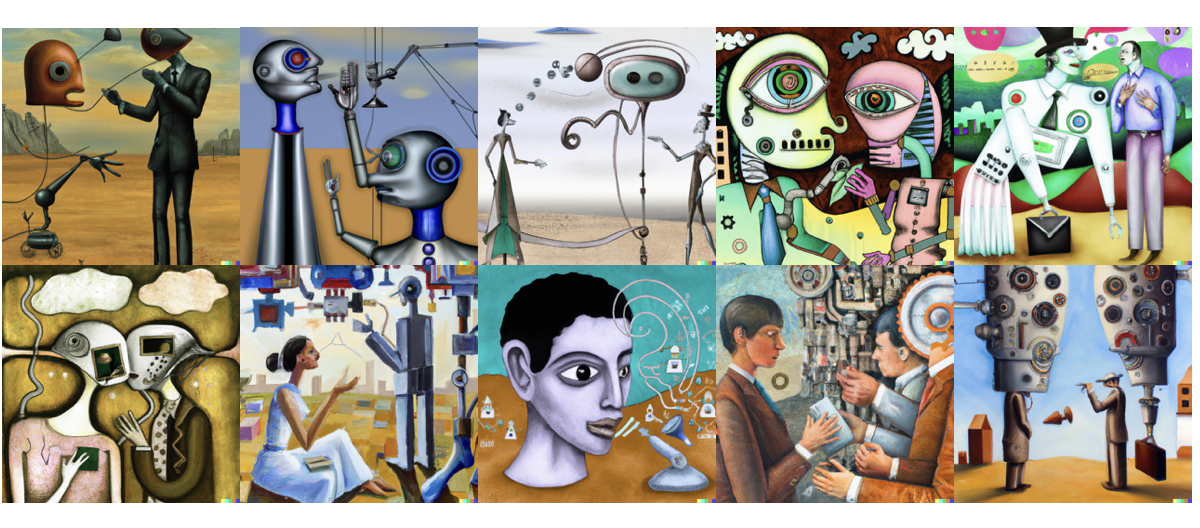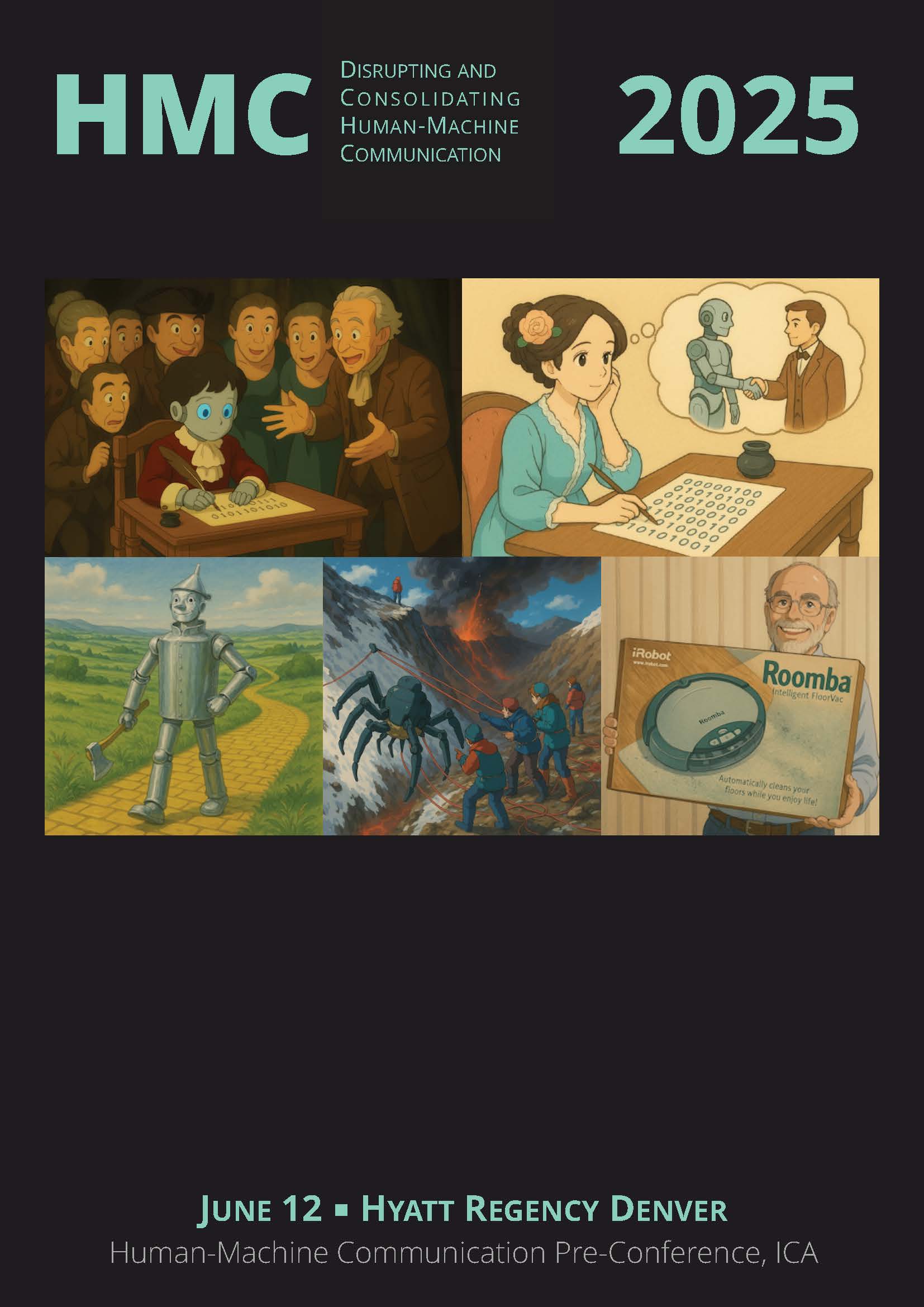Our Pre-Conference is scheduled for June 12th in Denver!
The Human-Machine Communication Interest Group supports and promotes scholarship regarding communication between people and technologies designed to enact the role of communicators (i.e., artificial intelligence (AI), robots, digital assistants, smart and Internet of Things (IoT) devices). HMC encompasses research within Human-Computer Interaction (HCI), Human-Robot Interaction (HRI), and Human-Agent Interaction (HAI) and related areas of study focused on how people make sense of machines as communicators; the implications of people’s interactions with communicative technology for individuals, organizations, and society; and the philosophical and critical critique of the design of these technologies and their integration into daily life. HMC also includes the study of the discourse surrounding communicative technologies and people’s communication with them. The HMC Interest Group is inclusive of the different theoretical and methodological approaches in communication research.
Links
MEMBERSHIP
https://www.icahdq.org/group/hmc
Join now! Official members of the group will receive information about calls and events. Members also have voting rights and can run for office.
When renewing your ICA membership or joining ICa for the first time, select Human-Machine Communication from the list of Interest Groups and Divisions
SHARE INFORMATION
HMC AT ICA’S “THE LINK”
https://link.icahdq.org/thelinkhome
Connecting you with peers to share strategic advice, solve challenges and develop new approaches. Sign in, select the IG “Human-Machine Communication”, and start sharing.
HMC SCHOLARS E‑MAIL LIST
hmc-scholars@listserv.temple.edu
The list addresses international scholars interested in human-machine communication (HMC), or the study of communication with a host of technologies, including HCI, HAI, and HRI. The purpose of this list is to share announcements relevant to the community including CfPs for conferences and publications.
HMC JOURNAL
https://stars.library.ucf.edu/hmc
Designed as an international, interdisciplinary hub, Human-Machine Communication will publish high-impact scholarship examining human-machine communication from a breadth of methodological, theoretical, and philosophical/critical angles to bring further visibility, legitimacy, and community to this newly emergent locus of scholarly and public interest. The journal is the result of collective organizing around recent pre-conferences and workshops at the International Communication Association (ICA), Association of Internet Researchers (AoIR), and ACM/IEEE International Conference on Human-Robot Interaction (HRI). It is clear there is tremendous scholarly energy converging around this topic matter.



